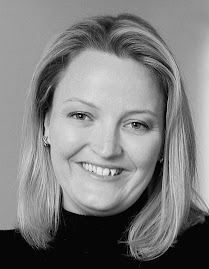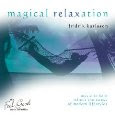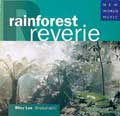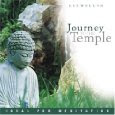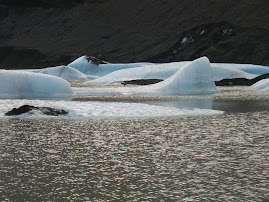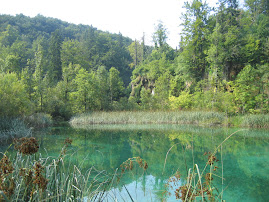I'm very excited to announce that Revive Holistic Marketing has launched its marketing workshops and marketing services for holistic therapists.
Revive Holistic Marketing was created in 2009, after it became clear to me that there was a need for further training for massage therapists and other holistic therapies practitioners. Nationally accredited courses such as the Certificate IV in Massage Therapy, Diploma of Remedial Massage and Diploma of Aromatherapy, provide excellent technical training, however therapists often do not receive specific and thorough guidance on how to market their services.
The Expedition to Success – Marketing Your Holistic Therapies Business workshop provides therapists with a solid overview of marketing, and offers practical tools and templates to help them launch or grow their businesses, and attract and retain clients.
Designed for newly qualified and practising massage therapists, aromatherapists, reflexologists, Chinese medicine practitioners, naturopaths, homeopaths, astrologers, numerologists, energy healers and virtually any holistic therapies practitioner, participants require no previous experience in marketing.
Workshops are currently scheduled to run in Brisbane, Byron Bay, Cairns, Coffs Harbour, Port Macquarie, Newcastle and Sydney, with more locations to be added throughout the year. The workshop fee is $385 per person and includes course materials, a complimentary listing on the searchable global therapy directory, Local Therapy, a 50% discount on a custom 6-page website (this offer is valued at $125) and more.
Revive’s workshops can also be customised for, and delivered to, natural therapies colleges, holistic therapies associations and other related organisations throughout Australia, New Zealand and the UK.
I’m passionate about holistic therapies, and my vision is to help holistic therapists grow successful businesses, while raising awareness of the benefits of holistic therapies in the community.
Therapists invest substantial time and money in gaining and maintaining their holistic therapies qualifications. By better understanding how marketing can drive sales and revenue, therapists who attend our workshops will also learn how to convert that investment into profit quicker, while earning continuing professional education points (CPE points).
Feel free to check out the site, or to contact us if you have any queries about the workshops.
Tuesday, May 5, 2009
Revive launches innovative new marketing workshops for holistic therapists
Saturday, November 22, 2008
Perfect Potion's delicious essential oils
I found the most delicious shop in Brisbane's CBD this week - Perfect Potion.
The shop smells divine - it was the wonderful aromas that lured me in. Perfect Potion sells a huge range of organic, (animal) cruelty-free essential oils, massage oils, oil burners, body and skin products, herbal teas, and also offers aromatherapy treatments in some of its shops. They had a fairly large range of blended essential oils, but the set that really caught my attention was the box of 7 chakra blends.
They had a fairly large range of blended essential oils, but the set that really caught my attention was the box of 7 chakra blends.
According to Perfect Potion's website; The root chakra connects us with our physical body and surroundings and promotes feelings of stability and security. Balance Chakra Blend is a blend of black pepper, vetiver, sweet orange, patchouli, lavender and Atlas cedarwood pure essential oils.
The sacral chakra represents our creative energy and is associated with the functions of our reproductive organs and sexual energy. Allure Chakra Blend is a blend of jasmine absolute, mandarin, sandalwood, cardamom, ylang ylang and patchouli pure essential oils.
The solar plexus chakra relates to our connection with others. Harmony Chakra Blend is a blend of vetiver, juniper, lemon, frankincense Roman chamomile and star anise pure essential oils.
The heart chakra is concerned with forgiveness and compassion – unconditional love through which we accept another for doing their best. Compassion Chakra Blend is a blend of rose absolute, ylang ylang, lavender, may chang, neroli, and bergamot pure essential oils. The throat chakra is associated with communication and self expression. Expressive Chakra Blend is a blend of German chamomile, sandalwood, basil, and sweet orange pure essential oils.
The throat chakra is associated with communication and self expression. Expressive Chakra Blend is a blend of German chamomile, sandalwood, basil, and sweet orange pure essential oils.
Divine within and without, the third eye chakra enables us to follow our intuition as we open up to new ideas and our imagination. Insight Chakra Blend is a blend of clary sage, myrtle, lavender, rosemary and bergamot pure essential oils.
The crown chakra represents enlightenment and self-realisation. Cosmic Chakra Blend is a blend of lavender, frankincense, East Indian sandalwood and cold pressed lime pure essential oils.
This box set would make a gorgeous gift for anyone who loves essential oils or is interested in chakras. It comes with a thorough little booklet that explains the chakras and how to use the oils to assist in re-balancing them. I've been burning the Base chakra blend since I arrived home, and it's lovely spicy aromas are filling my apartment.
Perfect Potion has shops in Brisbane, Sydney and Melbourne - definitely worth checking out if you're still looking for Christmas gifts, or if you simply want to lose yourself in the wonderful world of essential oils and all things aromatic.
Tuesday, July 29, 2008
Choosing massage supplies - where do you start!
Massage therapists have a reasonably limited number of "tools of the trade" - you'd think a comfy massage table, oil and towels would pretty much be it.
Not so! I've tended to choose my oils based on word of mouth recommendations - certainly, when I was training we quizzed the teachers about which oils they used and recommended, and it's always useful to ask what other therapists use. In the UK, I used carriers oils from Absolute Aromas, but there are a huge array of balms, lotions and carrier oils, and an even larger range of essential oils - the delicious smelling oils used in aromatherapy- to choose from.
The texture and smell of the oil, lotion or balm can have a dramatic impact on the quality of the massage. If it's too greasy, the therapist will have difficulty keeping contact with the client's body, and if it's too dry, it's difficult to get "glide" - so the massage will feel jerky. In reflexology class this week, our teacher has been discussing the Young Living range of oils, and has brought in various samples for us to smell and use. We don't use any oil in reflexology, but therapists will often use essential oils in diffusers or oil burner while they're doing a treatment. Similarly, reflexology can be done as part of a massage, so the issue of oils typically comes up in any gathering of massage therapists.
In reflexology class this week, our teacher has been discussing the Young Living range of oils, and has brought in various samples for us to smell and use. We don't use any oil in reflexology, but therapists will often use essential oils in diffusers or oil burner while they're doing a treatment. Similarly, reflexology can be done as part of a massage, so the issue of oils typically comes up in any gathering of massage therapists.
The people at Young Living do a great job of marketing - I love the names of their oil blends. Of course they have blends with names that you'd expect, such as Joy and Peace and Calming, but something like Highest Potential makes me want to go out and try it straight away.
According to Young Living's website:
"Highest Potential™ is an exotic blend of therapeutic-grade essential oils designed to increase your capacity to achieve your highest potential. It combines the uplifting and inspirational qualities of Australian Blue™, with the power of Gathering™, to hlp bring greater unity of purpose. Jasmine is added to enhance self-confidence, while ylang ylang calms, soothes and helps release feelings that might otherwise get in the way."
It's like a super blend of oils, which includes: Australian Blue, [a blend of blue cypress (Callitrus intratropica), ylang ylang (Cananga odorata), cedarwood (Cedrus atlantica), blue tansy (Tanacetum annuum), and white fir (Abies concolor)], Gathering essential oil blend [galbanum (Ferula gummosa), frankincense (Boswellia carteri), sandalwood (Santalum album), lavender (Lavandula angustifolia), cinnamon (Cinnamomum verum), rose (Rosa damascena), spruce (Picea mariana), geranium (Pelargonium graveolens) and ylang ylang (Cananga odorata)], jasmine (jasminum officinale) and ylang ylang (Cananga odorata). Wow - how's that for a list of ingredients!
Apparently, Young Living's oils are therapeutic grade, and the company claims it is the largest supplier of essential oils in the world. My first impression of the company this week is that their oils smell and feel great. I've ordered a seven-oil starter pack to check them out, and can't wait to work with them, or simply use them around home.
One of my massage study buddies in the UK also put me on to Tui - Balmes and Waxes. I'd never used waxes in my massages, but I was keen to learn more about them. Tui points out that waxes have an inherent benefit over oils in that oils are easily spilled, and can become so concentrated on bed linen that it proves impossible to wash out. Yuuuuuk!
 Tui's products are a blend of natural, organic beeswax and high quality vegetable oils. I like the fact that there are no artificial preservatives, emulsifiers, colouring agents, stabilisers or chemical additives are used in their products. I also ordered a couple of their blended waxes and one balm to try out in the coming weeks.
Tui's products are a blend of natural, organic beeswax and high quality vegetable oils. I like the fact that there are no artificial preservatives, emulsifiers, colouring agents, stabilisers or chemical additives are used in their products. I also ordered a couple of their blended waxes and one balm to try out in the coming weeks.I think it's important for therapists to choose their oils carefully and to be able to offer different products for different situations - some people prefer that oil is not used, particularly if there are no shower facilities in the massage room or clinic, and they have to go back to work or out to an appointment after their treatment.
I also think trade shows are a great way to check out new products, particularly if you're new to the industry.
I'd love to hear other people's views on oils and suppliers in Australia or the UK - feel free to post your thoughts on the blog.
Sunday, July 27, 2008
Student clinics at massage schools - great value and great experience
Massage Schools Queensland (MSQ), the school where I'm currently doing my reflexology studies, runs a student clinic, whereby students practice on members of the public, at highly discounted prices.
I'd come across the clinic concept when I did my massage studies in the UK, and had to participate in one clinic day. It seems to be different in Australia, or certainly at this school. Cert IV students at MSQ are required to do 40 hours of massage in the clinic, on top of their 100 or so practice hours outside of the school.
I think it's a great idea that benefits the soon-to-be massage students by giving them a broader range of experience while they're still under the guidance of teachers, while giving the public access to massage and other therapies such as aromatherapy, remedial massage and reflexology at greatly reduced prices.
Until I'd participated in a clinic day and received a massage at one, I'd always been a bit sceptical about whether I wanted a "beginner" practicing on me. However, I was extremely impressed at the quality of the massage I had at the MSQ clinic last week - done by one of my reflexology study buddies after our class.
Everything about the clinic, the pre-treatment consultation and the massage was professional. It was more thorough, in fact, than many massages I've paid full price for.
I think the main benefit of student clinics is that the students are keen to do their massage well, and are constantly receiving feedback from tutors and other students in class, and then put it to practice immediately in the clinic. It also simulates an actual clinic environment, so students gain relevant experience in the logistics of back-to-back appointments, changing treatment rooms over and building rapport with clients in a short period of time. It's also a great, cheap way to try out massage if you've never had one.
I completely recommend the MSQ clinic and am looking forward to another massage in a couple of weeks.
Check out your local massage school's clinic - chances are you'll save money and get a great massage treatment!
Saturday, June 21, 2008
Mapping massage qualifications across countries – not as straightforward as you would think!
I am learning a thing or two about the differences in massage qualifications between countries! It would appear that a massage therapist in Australia is required to undergo far much more study to qualify for a Diploma, than a massage therapist in the UK.
When I simultaneously completed my ITEC Diploma Course in Holistic Massage and BTEC Professional Diploma Course in Holistic Massage Practice in the UK in 2007, I was led to believe that the ITEC qualification was recognised almost globally - and certainly in Commonwealth countries such as Australia. I was aware that the higher level BTEC qualification was specific to the UK, but it gave me a deeper knowledge of massage techniques than the ITEC course would have
I thought that when I relocated back to Australia, the transfer of my qualifications would be a simple affair – have someone review and approve my UK qualifications, join the Australian Association of Massage Therapists, get insurance and get out there massaging commercially. After all, in the UK, I had been practicing commercially, was a member of the Complementary Therapists Association, and had all my insurance sorted etc.
Enter the Australian Qualification Framework (AQF) – the body that governs all accredited training courses in Australia. It’s about competencies, and any school, college, university or individual trainer who wants to offer nationally recognised courses must have their courses sanctioned under the AQF.
The Australian Association of Massage Therapists advised me to have my qualifications “RPL’d” – that is, assessed for Recognition of Prior Learning, either by a government department or one of the Australian massage schools. I chose to contact Massage Schools of Queensland and have them RPL my qualifications – I figured they would have far more of a clue about massage skills than a government department who simply mapped units of competency from the UK qualifications to the Australian framework.
Rhona, the owner of Massage Schools of Queensland was very helpful. When I was still in the UK, she asked me to send hard copies of my qualifications, detailed course syllabi and any supporting material about what my courses had included. That was all straightforward enough.
The next step was a face-to-face meeting, which I had earlier this week. We discussed my course in depth. The studies around anatomy and physiology, massage therapy practice and the clinical aspects of massage practice all seemed to map fairly consistently. Massage technique was another story however.
T o gain the minimum qualification in massage in Australia (the Certificate IV in Massage Therapy Practice), students have to complete practical units in Swedish massage, deep tissue massage, aromatherapy and reflexology. I don’t object to the fact that the Australian qualification requires students to study more modalities – in fact, I think that the more techniques a therapist can apply, the more effective treatment they can provide their clients.
In terms of the mapping to the UK qualification, my Swedish and deep tissue massage units were adequate. They had been the focus of my course. I had separately done a further, substantial qualification in seated/acupressure massage with TouchPro UK, and Rhona agreed that this could be substituted for either the aromatherapy or reflexology units. In the RPL process, “equivalent units” can also be counted – so the assessor will look to see how many hours the unit took to complete and determine whether it can be counted as an equivalent unit.
That still left me one unit short, and Rhona advised that I would need to do either the aromatherapy or reflexology modules before she could award me the Cert IV in Massage Therapy Practice.
I had previously investigated both modalities, and had intended to do some post-grad studies once life after my relocation was a bit more organised, and after I had practiced massage commercially more in Australia. When it became a matter of “you need to do another unit before you can qualify”, I decided to start a reflexology unit in July. I will most likely do the aromatherapy unit this year as well.
Once I’ve done the month’s worth of reflexology studies, I will gain my Cert IV, can join the association, get insurance, and start massaging. Who knows – I’ll probably go on to do the Diploma in Remedial Massage!
I’m all for further study, and I completely agree with the requirement for massage therapists and other holistic therapy professionals to continuously upgrade their skills - but I do object to the hoops (and additional cost!) that you have to go through to transfer qualifications between countries.
Anyway, I’m really looking forward to meeting my reflexology study buddies, and looking forward to being able to do a reflexology treatment by the end of July.
